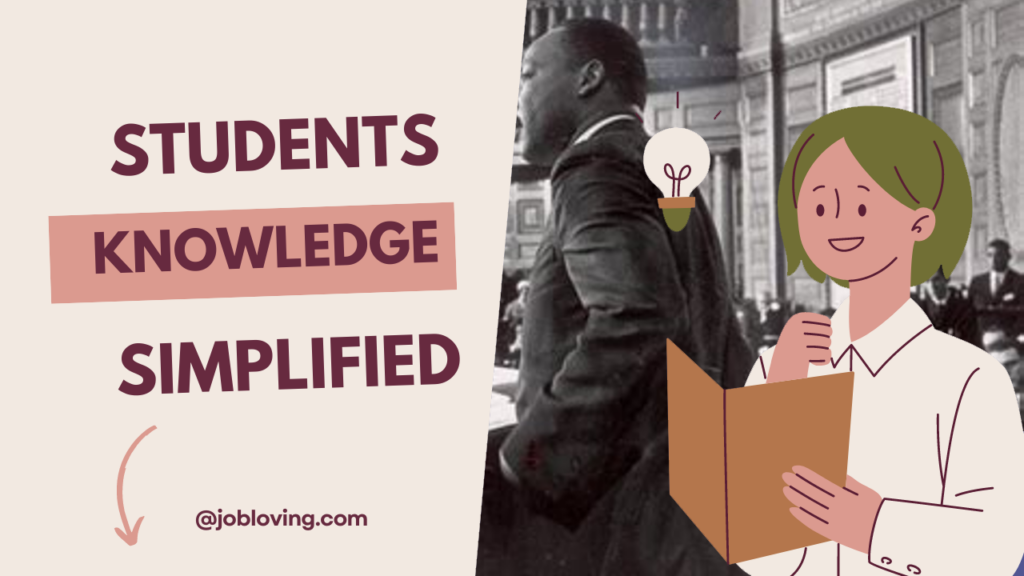What Happened While King Was Studying in Boston? A Deep Dive into an Influential Period of Activism
The struggle over school desegregation and education dominated Martin Luther King Jr.’s life during his formative years in Boston, where he ultimately earned his Ph.D. in Philosophy from Boston University in 1955. This vibrant city served as a crucial backdrop that not only shaped his academic pursuits but also fueled his burgeoning commitment to social justice and civil rights.
The Academic Groundwork: A Hub of Ideas and Ideals
King’s academic journey began at Boston University, where he sought to delve deep into philosophy and ethics. His time spent in the hallowed halls of learning did more than just fill his mind; it shaped his beliefs. The brilliant Howard Thurman, King’s mentor, embedded in him the principles of nonviolent protest and social justice that later became cornerstones of his activism.
- King was not merely a student—he actively engaged with peers and the local black community, fostering discussions that transcended the classroom.
- He founded “The Dialectical Society,” a platform for African American graduate students to confront segregation and explore contemporary issues.
- Informal gatherings often included humor; King joked about the death of Jim Crow segregation. His foresight about segregation’s demise empowered him and his peers, diminishing its psychological hold.
- This understanding was crucial in steering his activism; King explored the deep implications of personal idealism and human dignity that would later resonate in his speeches.
Pivotal Moments and Personal Milestones
Aside from his studies, King experienced significant personal events in Boston. In June 1953, he married Coretta Scott, who he had met during his time at the university. Their relationship went beyond romance; it intertwined personal and political aspirations, as they both became committed advocates for civil rights.
Interestingly, King participated deeply in Bostonian life. His apartment became a hub for black students seeking a space to engage in dialogues about social issues. The lively intellectual exchanges in these gatherings cultivated a sense of unity among African Americans facing discrimination—something King cherished throughout his life.
Activism in Action: The Fight for Educational Equity
As King progressed in his studies, he became increasingly involved in activism, particularly in relation to education. On April 22, 1956, he led a significant protest march from the Carter Playground in the South End to Boston Common. This event captured immense media attention and marked a pivotal moment in the movement against school desegregation. King’s speech that day targeted the elementary injustice of racial inequity in education, stressing its broader implications beyond Massachusetts.
- King’s presence consistently challenged the status quo; he became a formidable voice against de facto segregation in Boston public schools.
- His advocacy efforts played a critical role in shaping the Massachusetts Racial Imbalance Act of 1965, which aimed to address educational disparities.
- He did not shy away from vocalizing the impact of racial imbalance, visiting schools like Patrick T. Campbell Junior High School to highlight these injustices.
A Growing Reputation: Challenges and Triumphs
Of course, the path was fraught with challenges. King faced significant backlash from various sectors, including intimidating death threats aimed at silencing his voice. Yet, each challenge he faced fortified his resolve and leadership skills, preparing him for the national stage.
Interestingly, feedback from his peers and faculty members at Boston University suggested that many expected him to join academia due to his intellectual prowess. However, King made the poignant choice to lead Dexter Avenue Baptist Church in Montgomery, Alabama, shortly after receiving his Ph.D., marking the beginning of a legendary chapter in the civil rights movement. His profound commitment to social justice was set aflame during his Boston years, as he became more ingrained in the fabric of his community.
The Legacy of Friendship and Community
Martin Luther King Jr.’s experiences were not isolated in academia; they were richly intertwined with friendships that provided emotional support and camaraderie. Many of these relationships, constructed during his studies, helped to amplify his message and drive for activism. The bonds formed among his peers enriched not only his intellectual perspective but also laid the groundwork for a robust support network that continued to inspire his work.
- Throughout these formative years, King fostered friendships with fellow students, often engaging in serious conversations about race and social issues.
- He often joked about serious topics, blending humor with discussion—one ability that showcased his unique approach to addressing social issues.
- In these discussions, King’s charisma and vision for a more equitable society resonated with many, steering them toward activism.
The Return: A Legacy Solidified
Fast forward to 1965; King returned to Boston, not as a student but as an internationally recognized figure having won the Nobel Prize. At this time, Boston stood as a significant symbol in his journey towards equality and justice. The ties he had formed in this city—through academic pursuits and community engagement—proved essential to the evolution of his leadership style.
On his return, King delivered another profound speech at Boston Common, reminiscent of his earlier activism. This time, he reinforced his commitment to equality and highlighted the continuing necessity for societal change. The echoes of his earlier struggles became apparent, as he reiterated the importance of educational equity and the ongoing fight against segregation.
A City that Shaped a Leader
Boston was not merely a backdrop; it was a vibrant frame that shaped King’s personal and professional identity. From engaging discussions about race to actively participating in protests against injustice, King absorbed the city’s progressive atmosphere, which ultimately fostered his growth as a committed leader of nonviolent social change.
In conclusion, Martin Luther King Jr.’s years in Boston were transformational. His academic pursuits, extensive community engagement, and personal milestones coalesced into a powerful narrative that set the stage for his future as a renowned civil rights leader. The indelible marks left by his time in this city reflect a deep commitment to social justice—a journey that would leave a lasting legacy in American history.

